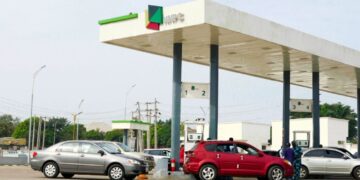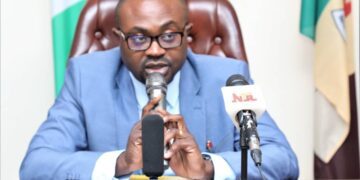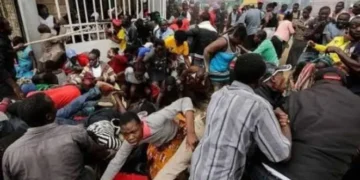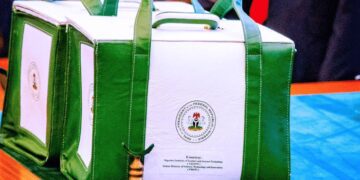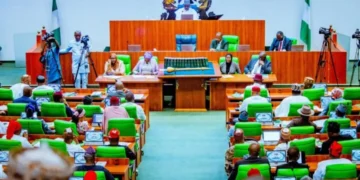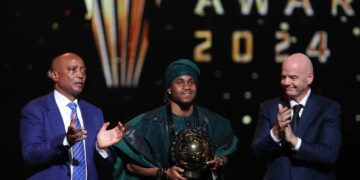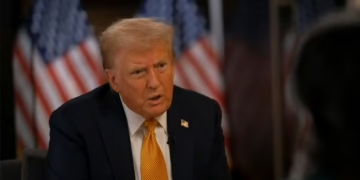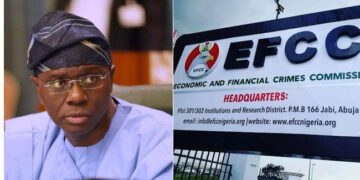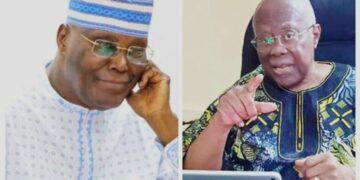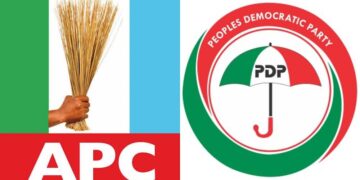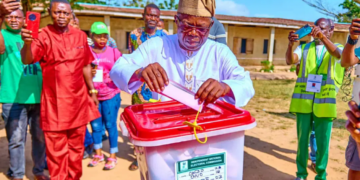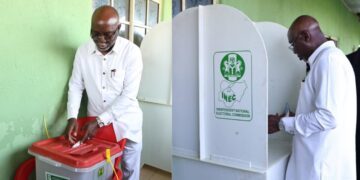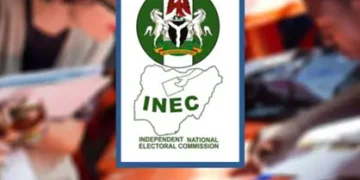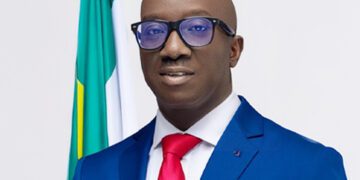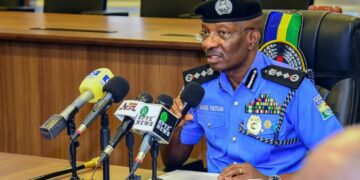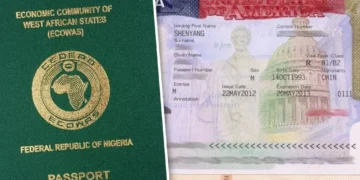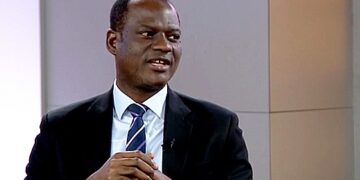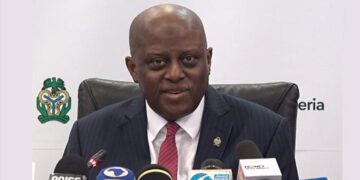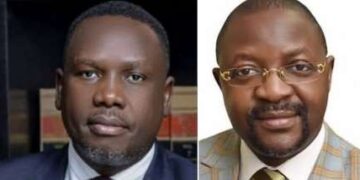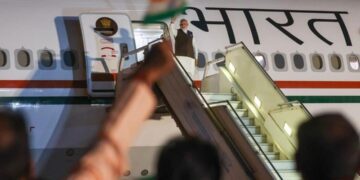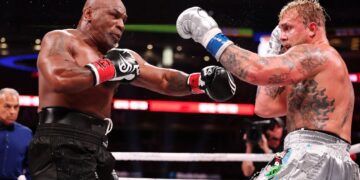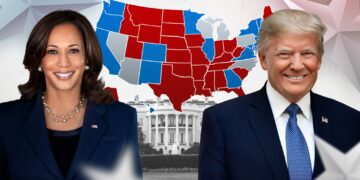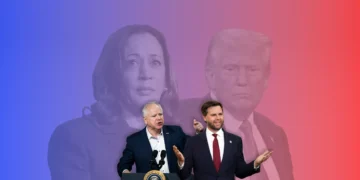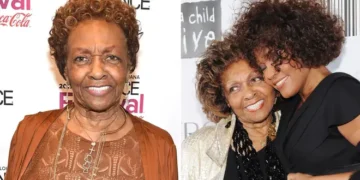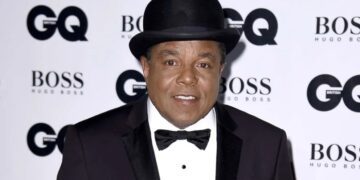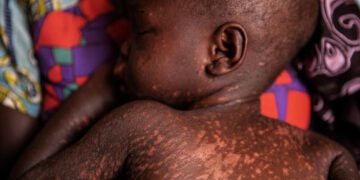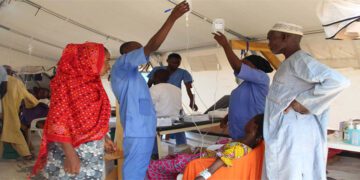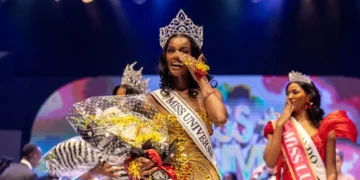BY OMONIYI IBIETAN, Ph.D., fnipr
Earlier today (October 6, 2022) up till early evening, about two hundred Nigerians, listened raptly to Prof. Kingsley Moghalu, lawyer, ex-Central Banker, scholar, public intellectual and former presidential candidate in the 2019 Nigerian elections, as he delivered the keynote speech at the public presentation of the 2022 Nigeria Social Cohesion Survey Report conducted by Prof. Bell Ihua-managed Africa Polling Institute (API).
The lead paper presentation was followed by a panel discussion by Saudatu Mahdi, Secretary General, Women’s Rights Advancement and Protection Alternative (WRAPA); Dr. Omoniyi Ibietan, Head Media Relations, Nigerian Communications Commission (NCC); Aisha Yesufu, President Citizens Hub; and Yemi Adamolekun, Executive Director, Enough is Enough (EiE). The session was moderated by Uju Nwachukwu, Head of Station, KISS FM, Abuja. The panel took a broad, informed, and patriotic look at the issue of social cohesion in Nigeria, not really bemoaning the Nigerian social reality as it has become characteristic of our ever lively, controversial national discourse, but essentially proffering solutions aptly in the context of the frightening findings of the API Survey.
Last year, the Vice President of the Republic, Oluyemi Osinbajo, a professor of law, SAN, GCON, was the keynote speaker at the annual API event. Nigeria’s mark in social cohesion was 44.2% in 2021, a 6% shortage for Nigeria to hit the average global threshold. This year (2022), the Nigeria Social Cohesion Index (NSCI) is 39.6%, a 4.6% decline from 2021, which was already a short fall from the 50 percent average.
A socially cohesive society fights exclusion, creates a transparent sense of belonging, ensures social justice, is marked by a considerable sense of trust, and signposted by a reasonable degree of participation, sense of relationship, bonding, trust, worth and acceptance. Moghalu submitted with all strength his chubby frame could muster, the panel that discussed his paper and the findings of the 2022 Survey also agreed, so was every soul in the auditorium of the Chelsea Hotel in Abuja, venue of the event.
Sadly, Nigeria falls short of the indices and organising principles of social cohesion. Dr. Ifeanyi Onwuzuruigbo of the University of Ibadan, and Prof. Hauwa Yusuf, of Kaduna State University, who were intimately involved in the survey said the study, focused on 13 indicators and sub-indices, is a product of world best practices in methodological design, which reliability or internal consistency was tested with Cronbach’s Alpha Value that equals 0.510, because “values less than that are usually not acceptable.”
The 13 indicators computed using primary data from both quantitative and qualitative approaches are identity, trust, social justice, participation and patriotism, worth, future, gender equity (not equality), natural resources governance, impunity, corruption, peacebuilding, polarisation, and coping strategies.
Findings revealed that 81% of Nigerians are comfortable with their dual individuality. While 36% are fine in being both Nigerian and member of ethnic groupings, 35% identify more with their ethnic groups, “only 10% feel more Nigerian than ethnic”. Fifty percent “feel disappointed in Nigeria” and 66% feel Nigeria is more divided today than it was in 2018. “Major causes of conflict were political party affiliations, ethnic and tribal differences, religious differences, access to land, and differences in social status”.
On trust, religious leaders were rated more favourably (50%), then traditional leaders (43%). “Trust for President Buhari’s Government, National Assembly and the Judiciary have declined to 17%, 16% and 22% respectively”.
Sixty-one percent (61%) Nigerians said the “Federal Government is not making enough effort to promote a sense of inclusion for all ethnic groups, only 12% assess government positively on social justice. A substantial 67% said the law does not apply equally to citizens”.
On participation and patriotism, 71% Nigerians are willing to cooperate with fellow citizens to make Nigeria more socially cohesive, “42% expressed willingness to join the military to defend the Nigerian state”. Herein lies a major spicing promise to savour in the report and a great hope for remaking Nigeria.
Natural resource governance is perceived very poorly, as 65% Nigerians felt Government was mismanaging revenues from natural resources. Expectedly, a significant proportion (77%) of those who felt the natural resource governance policy is unfair and insufficient are based in the South-South region.
Fifty-three percent Nigerians rated the Buhari administration’s action on gender equity as poor, and “80% of Nigerians feel boys and girls should have equal access to education, and 71% believe boys and girls should be assessed based on their qualifications, competence and track records”.
On impunity, 96% of Nigerians “consider human rights abuses and violations a problem in the country…53% of citizens believe that impunity thrives in the current administration; 83% believe impunity amongst government officials is increasing; 63% believe that state agents such as the police and military are often perpetrators of human rights abuses”.
Study findings on corruption governance is devastating as 75% believe the level of corruption has increased in the past one year, 76% of citizens perceive government’s effort at halting corruption as “poor”, and 87% were of the view that the path to justice is paved with corruption.
A huge figure (67%) rated government poorly in peacebuilding and 58% believed peacebuilding can be achieved better through local efforts. Government is rated as inactive in peacebuilding but unlike government, churches and mosques as well as civil society organisations have been rated highly in helping citizens to cope with the challenges of poor social cohesiveness. Indeed, “53% of Nigerians said they do not rely on government for support with the challenges of poverty and insecurity in Nigeria”.
Nigerians are so polarised in the context of faith, ethnicity, and religion, and they said Nigeria is more polarised in 2022 than it was under previous administrations. The causes of polarisation are “ethnicity (62%), political affiliation (60%), and religion (57%)”.
On self-worth, “63% of Nigerians said they feel ‘extremely or somewhat dissatisfied’ about their lives as Nigerians, and top destinations for those with a tendency to emigrate are the United States (28%), United Kingdom (15%), Canada (14%), Saudi Arabia (9%), and Dubai (8%)”.
Gratifyingly, “60% citizens believe that the future of the country would be better than it is presently” but 27% are pessimistic while 6% of the citizens do not see possibility of any change for a better society.
The participants agreed with the keynote speaker that there must be some sort of restructuring of the polity not to divide Nigeria but to make it better and flourish for the prosperity of all citizens. The reason as Moghalu argued, is the evident failure of governance arising fundamentally from the departure from federalism which is the foundation for Nigeria’s independence as advocated by Sir Ahmadu Bello and Chief Obafemi Awolowo. Moghalu reminded the audience that it was Dr. Nnamdi Azikiwe who was reluctant about embracing federalism but Bello and Awolowo and others had to convince Azikiwe to let the young nation adopt federalism.
In his paper titled, BRIDGING THE FAULTLINES IN THE QUEST FOR SOCIAL COHESION, Moghalu submitted persuasively, that there is progressive absence of state capacity in terms of ability to defend territorial integrity, effective collection and administration of taxes (which has worsened Nigeria’s fiscal crisis), and painfully, the Nigerian state lacks capacity to efficiently and effectively managed health, education, water and sanitation as well as every index of social cohesion and development.
Insisting that social cohesion is the real basis for development, Moghalu submitted to the unequivocal approval of participants that, to bridge the faultlines, Nigeria must prioritise competence in the management of her resources and in governance, offer incentives and immediately institutionalise direct state policies that focus on job creation – a job creation exercise managed through stakeholder collaboration because the state cannot act effectively in this regard owing to incapacitation. Moghalu stated that investment in education is irreducible but should focus on ‘Brain Capital’, a skill-oriented education of young people, aligned with the embrace and utilisation of technology and not just any kind of certification.
The former Deputy Governor of Central Bank and professor of practice in international business and public policy at Tufts University in Boston, USA, appealed to all of us to manufacture consensus because people must be willing and consent to be Nigerians and we need sophisticated and egalitarian leadership to achieve this by first returning to the Nationality Question. This consensus must be driven by the spirit of honest conversation with the objective of stabilising the polity and migrate the people of Nigeria to prosperity, rather than pivot discourses on national development on a “perpetual mantra of indivisibility”.
The quartet of Mahdi, Adamolekun, Yesufu, and Ibietan, also offered solutions for remaking Nigeria. While Mahdi called on women to be ready to re-enact their natural role as first teachers for the children and young people, and be willing to help refocus strategically and constructively the energy of the youth, Adamolekun and Yesufu insisted that those who wish to lead the nation must do so with the most scrupulous conscientiousness of honour, they must submit themselves to tests and pass very well via public scrutiny, and the duo equally urged Nigerians to be ready to turn out massively in the forthcoming elections to elect leaders that are responsible and accountable. Importantly, they urged Nigerians to be willing and ready to ask questions and take the leaders to task even after elections, because eternal vigilance is central to harvesting derivable benefits of democracy.
Ibietan advocated that appointed and elected elites must be ready to walk the talk on federal character principles and similar affirmations in all they do, particularly in ensuring inclusiveness, diversity, and representativeness in appointing even their personal aides. He also called for a policy that incentivises those who have acted to promote social cohesion, and punishment for those who have promoted divisiveness. Ibietan also tasked citizens to rally actions focused on making constitutional provisions that empower the media to hold government accountable to be justiciable. He called for more investigative and interpretive reportage because such perspectives give better context and meaning to media’s role as agents of social cohesiveness, and he appealed to citizens to support the media enterprise because good journalism holds a big promise for promoting democracy, accountability, transparency, and by that fact, social cohesion and development.
















